Discover financial empowerment resources
Discover financial empowerment resources
There are many different actions that can be taken to improve financial wellbeing. The Financial Wellbeing Framework offers 17 entry points to action to inform government, organizations, policymakers, decision-makers, practitioners, and researchers in their efforts to address financial...

If any of these statements sound like something you would say about money, this toolkit is for you: • I don’t have enough money to live on each month. • I find it frustrating to have to share my situation over and over again. • I wish I could find help easily but don’t know where to...

The Navigating Tech Abuse Toolkit is a resource for frontline workers in domestic violence shelters in northern, remote, rural, and Indigenous (RRNI) communities. In this toolkit, you will find a series of conversation guides that you can use when working with survivors. Each guide focuses on a...
November is Financial Literacy Month This year marks the 15th anniversary of Financial Literacy Month (FLM) in Canada. Since 2011, FLM has helped Canadians strengthen their financial knowledge and skills with the goal of improving their financial well-being. Led by the Financial Consumer Agency...

A culturally grounded resource to support Indigenous financial wellness. Braiding Mind, Body, and Spirit is a financial wellness bundle created by and for Indigenous individuals and communities. Developed with Indigenous teachings, community voices, and practical tools to support individuals,...
This toolkit, presented by Pathways to Prosperity, features a variety of practices and programs that can be used to address and improve each of the characteristics of a welcoming community, as identified in Toolkit I: Measuring Welcoming Communities. The goal is to mobilize and facilitate the...
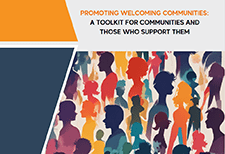
Financial literacy in the Black community is crucial for the economic prosperity of Black families across Canada. According to a 2015 report released by the Canadian Center for Policy Alternatives, 60 percent of Black Canadians fell into the bottom half of the national distribution of economic...
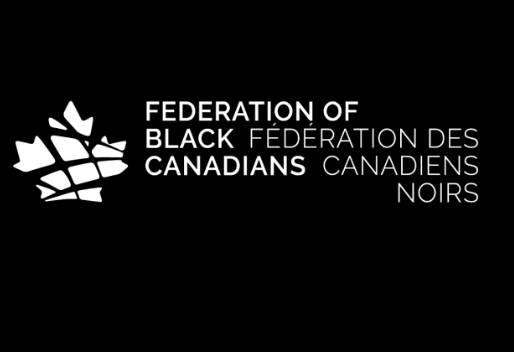
Financial coaching (FC) is a transformative approach that empowers individuals to take control of their financial future. Through personalized interventions such as assessing financial positions, creating budgets, managing credit, accessing benefits, and filing taxes, financial coaching equips...
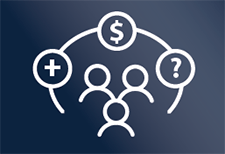
Homelessness among women and gender-diverse people in Canada has been declared by the Federal Housing Advocate a national human rights crisis. This new toolkit will support the evidence- and testimony gathering for the upcoming National Housing Council’s Review Panel on Canada’s Failure to...
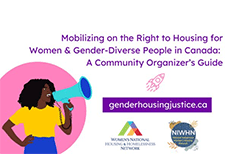
This collection of financial empowerment tools and resources is intended to support both Indigenous and non-Indigenous organizations working to help Indigenous Peoples navigate the receipt of a lump sum payment. It was created as part of the Expanding investor education and protection for...
This toolkit provides: An overview of some solutions that shelter providers can implement to improve their service delivery and processes in a way that upholds the rights and dignity of shelter residents. Helpful resources to support shelter providers, advocates and lived experts in...
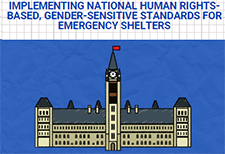
Maytree has compiled an advocacy toolkit to help you advocate for the Canada Disability Benefit (CDB). This toolkit consists of an introduction, additional resources and frequently asked questions and the toolkit. You may download the toolkit by jurisdiction on their website: Advocacy...
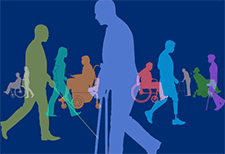
Banks in Canada are working around the clock on the prevention and detection of fraud and cyber security threats and work closely with each other and with bank regulators, law enforcement and all levels of government to protect the financial system and their customers from financial crimes. There...
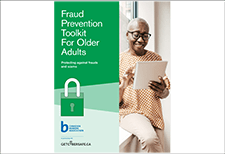
The British Columbia Securities Commission’s InvestRight has unveiled an online space dedicated to women and investing. This comprehensive guide to investing, called Women and Investing, features quizzes and resources explicitly designed to engage more women in investing. To assist you in...

Parents and caregivers worry about who will be there when they are no longer able to care for their loved ones with a disability. It is a question that weighs heavy on families. Family members, or parents, want to know what options will be available and who will be making decisions for their loved...

The Canadian Bankers Association’s Cyber Security Toolkit for Newcomers to Canada, developed in collaboration with Get Cyber Safe, aims to educate newcomers on cyber hygiene best practices and empower them so that they are equipped to recognize and avoid common scams in Canada. The Toolkit...
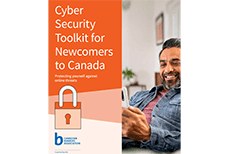
March is Fraud Prevention Month in Canada. This year's theme is "20 years of fighting fraud: from then to now", and will help Canadians recognize how fraud has evolved over the years. Canadians are encouraged to use learn more about common frauds and scams, use these promotional materials shared...
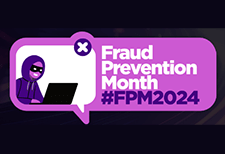
Centering equity is key to the purpose and mission of any collective impact work, no matter the issue area or focus. It is very difficult to move population or systems change without redressing disparities that exist in almost every community. Part of the challenge is there is not one path to...
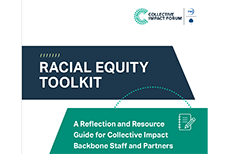
In time for Financial Literacy Month, the Financial Consumer Agency of Canada has released several resources on their website. Checking up on your progress in managing and paying down debt is an important part of maintaining your overall financial health. This infographic outlines how to...

This toolkit was created to support the Virtual Self Filing tax filing model piloted in 2020-2022 by Canadian community agencies. In this model, individuals file their own tax returns, but receive support from community agency staff or volunteers to do so. In 2023, this toolkit was updated to...
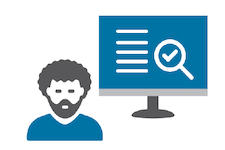
It's never too early or too late to learn about your retirement options and plan for your future. Using the Government of Canada's newly launched Retirement Hub, find out about public pensions, when to collect them and tips to consider for your retirement income. Get started using their...
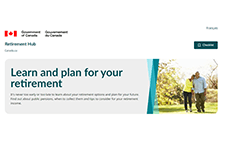
A comprehensive learning program that provides basic information and tools to help adults manage their personal finances and gain the confidence they need to make better financial decisions. Learn more about the program and how to use the learning...

Saving is an important part of financial well-being. Saving money helps you manage short-term needs such as day-to-day spending. It protects you and your family during emergencies. It is the key to reaching your future hopes and dreams. Maybe you are recovering from a hard time financially and...

Many of us struggle to talk about money, especially when it comes to talking about debt. It is when debt becomes too much for us to manage, or when we do not have a plan to pay it off, that it can become stressful and even overwhelming. This is when it is time to have those tough conversations and...

People save for different reasons. For instance, you may want to save for emergencies, or for your children’s education, or for your old age. Having goals for your savings helps to keep you motivated. You sleep better knowing you have some money set aside. Saving accounts earn interest. That...

